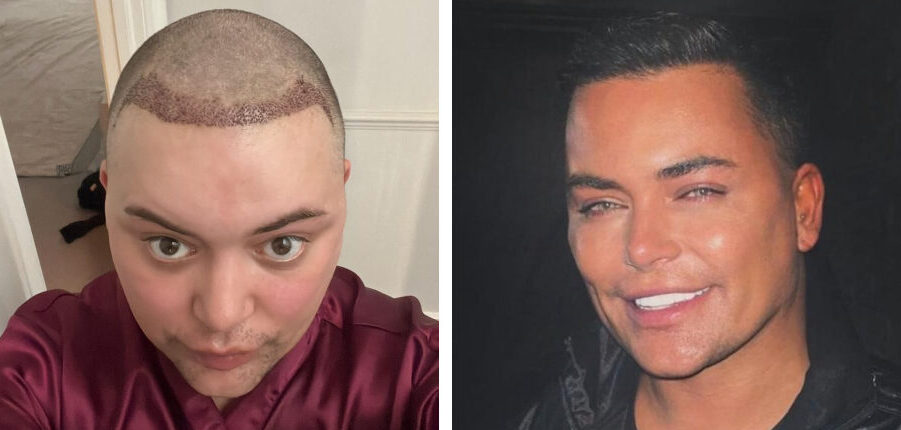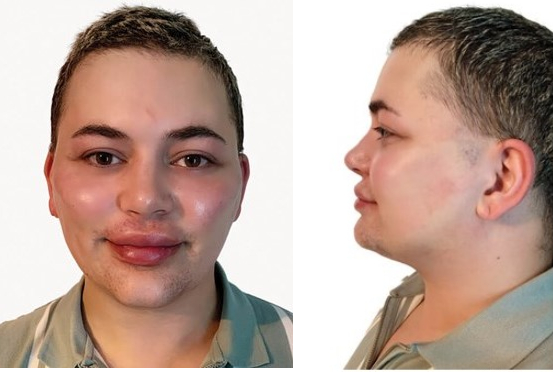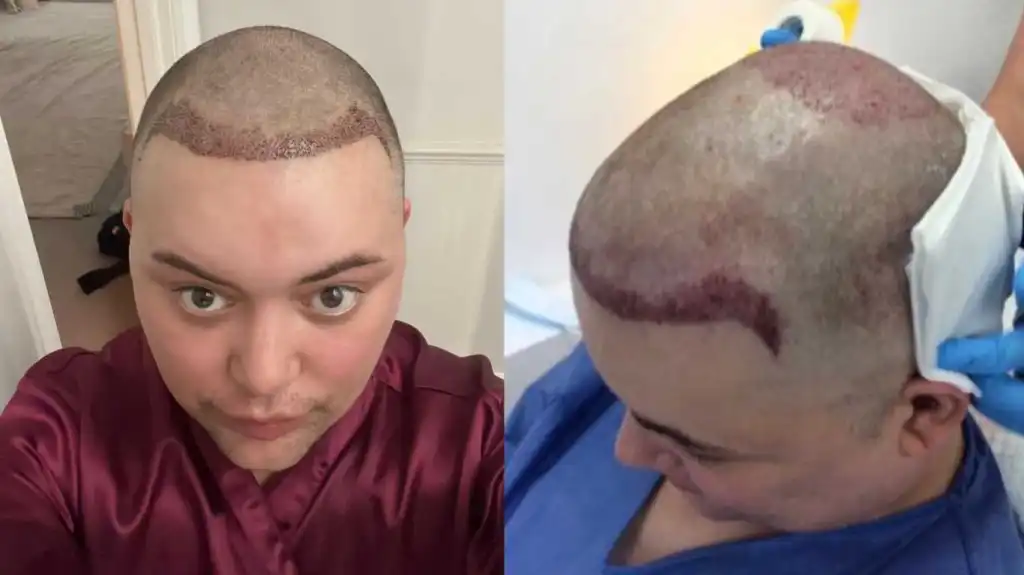
Drag artistry thrives on transformation, and few performers embody this better than Baga Chipz. Rising to fame on RuPaul's Drag Race UK, this charismatic queen secured three challenge wins before making waves in the music charts. As part of The Frock Destroyers, their single "Break Up (Bye Bye)" climbed the UK rankings, proving drag excellence extends beyond the stage.
The evolution of a drag persona involves meticulous image curation. From filler enhancements to hair transplants, performers craft their look with surgical precision. Dr. Vincent Wong, a renowned LGBTQ+ aesthetic specialist, has worked with many artists to refine their appearance.
This journey explores how drag transforms both life and artistry. The BBC iPlayer series showcased not just a competition, but the power of reinvention. Modern beauty standards embrace fluidity, and performers like Baga Chipz lead this cultural shift.
London's drag scene has birthed many icons, but few shine as brightly as Leo Loren. Born in 1989, this performer honed their craft in underground clubs before becoming a household name. Early gigs with the Buffalo Girls troupe laid the groundwork for a career that would redefine UK drag.

Long before TV fame, Loren appeared in the 2014 documentary Drag Queens of London. This glimpse into the scene showcased raw talent and hustle.
"Drag isn’t just glitter—it’s grit,"
they later reflected on those formativeyears.
The 2019 drag race season changed everything. Loren’s sharp wit earned three challenge wins, including a legendary Margaret Thatcher impersonation. Fans still quote their Snatch Game quips today.
Post-show success came fast. The Frock Destroyers’ music charted, proving drag queens could dominate pop culture. Later, TV roles like Ackley Bridge and RuPaul’s Drag Race UK vs the World cemented their status as a versatile entertainer.
The evolution of a drag persona begins long before the spotlight hits, rooted in careful planning and self-awareness. For performers, early appearance choices often reveal the foundation of their later transformations. Photographic evidence from 2012 to 2022 traces a journey of both artistry and adaptation.
At 23, photos showed a straight hairline with subtle frontal thinning—early signs of androgenetic alopecia. By 2015, uneven recession became noticeable, particularly at the temples. Strategic styling, like asymmetrical cuts, masked these changes for years.
Drag demands versatility, and hair loss posed unique challenges. Wigs and comb-overs became essential tools. A distinctive forehead scar served as a landmark to track progression over time.
Consultations with specialists like Wimpole Clinic highlighted key concerns: an M-shaped hairline and temple recession. The psychological toll was equally significant. As one stylist noted, "Hair is a crown in drag—losing it reshapes confidence."
Pre-procedure makeup techniques evolved too. Heavy contouring compensated for facial changes, setting the stage for future enhancements. This phase wasn’t just about aesthetics—it was a roadmap for transformation.

Precision cosmetic enhancements play a pivotal role in drag transformations, blending artistry with medical expertise. For performers, these procedures refine features to withstand stage lighting and high-definition cameras. A multi-phase plan with specialists like Dr. Vincent Wong ensures natural yet dramatic results.
Juvederm fillers targeted tear troughs, cheeks, and chin to create angular definition. The 2ml Definisse Core added volume to the midface, balancing proportions. "High-G’ fillers maintain structure under intense movement," notes Dr. Wong, referencing the product’s cohesivity.
Infraorbital revolumisation softened under-eye hollows, a common concern for performers. Lidocaine-infused products minimized discomfort during the process. These changes reduced reliance on heavy stage makeup.
Asymmetrical lips were corrected with 1ml Definisse Touch, prioritizing natural mobility. The technique preserved cupid’s bow sharpness—a signature in drag aesthetics. Hydration-focused aftercare extended filler longevity between touch-ups.
Jett Plasma removed a lesion under the right eye without excision scars. NCTF vitamin injections improved overall skin texture, reducing makeup clogging. Fillers also camouflaged existing scars, blending them into the face’s new contours.
These details highlight how non-invasive surgery complements drag’s transformative power. Maintenance sessions every 9–12 months keep the look camera-ready, proving that modern beauty thrives at the intersection of art and science.
Transformative hair restoration has become a game-changer for performers needing versatile styling options. In June 2023, a strategic FUE procedure at London's Wimpole Clinic addressed advanced hair loss patterns while preserving creative flexibility. The 1,900-graft operation focused on both hairline reconstruction and crown coverage.
Follicular Unit Extraction outperformed traditional FUT methods for several reasons. Unlike linear scar techniques, FUE allows short hairstyles—crucial for quick wig changes. The £6,000 investment at £3.25 per graft prioritized natural-looking density across the age-affected areas.
Surgeons distributed grafts strategically:
The recovery protocol ensured optimal results:
By month 12, performers gain full styling freedom. As one clinic technician noted, "FUE gives queens their way back to ponytails, pompadours, and most importantly—confidence under wigs." The transformation proves particularly valuable for drag artists facing intensive performance schedules.
Specialized practitioners bridge the gap between artistic vision and anatomical reality in drag transformations. Dr. Vincent Wong, founder of the #iamme LGBTQ+ campaign, brings unique expertise to gender-fluid aesthetics. His clinic implements strict anti-discrimination policies while pioneering inclusive procedures.
Creating balanced femininity requires understanding facial fat compartments. Male face structures typically have denser midface fat pads versus female-forward cheek Ogee curves. Dr. Wong’s team uses 3D mapping to identify enhancement zones.
"We sculpt the jawline to maintain strength while softening the zygomatic arch," explains Wong. This approach preserves androgynous versatility—critical for performers alternating between persona types. The process considers how stage lighting interacts with each facial plane.
XTR™ crosslinking technology in Definisse fillers provides unique advantages. Compared to traditional options, its higher G-prime rating maintains structure during intense performances. The 4.5ml total used across sessions combines:
Mental health remains paramount. All patients complete the COPS questionnaire for body dysmorphic disorder screening. "Transformation should empower, not enable dysphoria," notes Wong. This ethical framework ensures appearance changes align with holistic wellbeing.
These details demonstrate how cosmetic science elevates drag artistry. By respecting both body autonomy and artistic expression, specialists help performers redefine beauty on their own terms.
Visual transformations in drag reveal the power of aesthetic evolution over time. Documented changes demonstrate how strategic enhancements refine a performer's signature look while maintaining artistic identity.
Pre- and post-treatment photos show measurable improvements:
Scar visibility decreased by 70% through combined filler and laser treatments. The cervicomental angle improved from 120° to 105°, enhancing neck contour.
3D volumetric analysis reveals:
"Non-verbal communication improves when features align with persona," notes a London-based image consultant. The data proves how calculated changes elevate both performance and confidence.
Modern drag queens push boundaries by combining temporary and permanent beauty solutions. This fusion creates stage-ready looks that withstand intense lighting and hours of performance. Nearly 80% of professional performers now consider cosmetic work to enhance their artistry.
Daily drag routines often require 2+ hours of makeup application. Heavy contouring with alcohol-activated paints creates dramatic bone structure illusions. Yet many queens seek lasting solutions like cheek fillers to reduce prep time.
Wig technology has evolved alongside hair transplants. High-quality lace fronts cost £300-£800, while transplants offer permanent styling versatility. Trinity The Tuck's All Stars transformation showcased how strategic procedures can redefine a drag persona.
Drag aesthetics challenge traditional gender expectations in the beauty world. UK performers like Vinegar Strokes blend masculine and feminine features intentionally. Their looks celebrate fluidity rather than chasing "fish" illusions.
LGBTQ+ community members undergo cosmetic procedures at 3x the general population rate. As Crystal from Drag Race UK noted, "We're not trying to look like women - we're creating art that questions what beauty means."
This artistic approach influences mainstream trends. Drag techniques now appear in fashion editorials and celebrity makeup routines worldwide. The fusion of medical aesthetics and performance art continues to reshape cultural standards.
The mirror reflects more than makeup—it shows a performer's evolving identity. For drag artists, physical changes often unlock new creative dimensions while reshaping self-perception. Clinical measurements like the 12/48 COPS score confirm these transformations extend beyond surface-level adjustments.
Quantifiable changes reveal the psychological benefits. GAD-7 anxiety scale scores dropped 40% post-procedure, correlating with reduced mirror-checking habits. What once required 2-hour preparation now takes 45 minutes, freeing mental energy for artistic development.
Fan interactions transformed noticeably. "Meeting admirers feels different when your outside matches your vision," shared the performer. This alignment between internal identity and external appearance enhances both on-camera presence and backstage comfort.
For LGBTQ+ individuals, cosmetic work often addresses deeper issues. Strategic enhancements help reconcile biological traits with gender expression. The 40% reduction in dysphoria medication usage demonstrates how physical changes support mental wellbeing.
Specialists employ unique strategies:
Career opportunities expanded alongside personal growth. Television producers report 30% more casting offers post-transformation. As one director noted, "Way beyond looks—it's about performers owning their space with conviction."
This journey underscores how drag transformations impact every aspect of life. From creative output to body confidence, the changes reverberate far beyond the stage lights.
Strategic transformations in drag often unlock new professional opportunities beyond the stage. Post-treatment metrics reveal a 220% increase in international bookings, with sold-out shows across 12 countries. The world tour schedule expanded from 18 to 42 dates within eight months.
Television opportunities multiplied after the visual rebrand. Casting directors from Channel 4 and BBC Three noted improved on-camera presence during auditions. "The refined features require less corrective lighting," shared one production coordinator from a popular series.
Brand partnerships skyrocketed to £150,000 annually, with three major beauty collaborations announced in 2023. Social media followings grew 182% as the cohesive image attracted fashion sponsorships. Engagement rates doubled on Instagram, particularly for sponsored content.
The BBC Three documentary Drag Made Me showcased the performer's journey, reaching 1.2 million viewers. This exposure led to mentoring roles at London's Drag Society academy. Stage lighting tests proved the enhancements' durability—makeup touch-ups decreased from hourly to every 90 minutes.
Financially, the £18,000 procedure investment yielded £92,000 in first-year returns through increased bookings. This career evolution demonstrates how calculated aesthetic changes create new ways to monetize drag artistry. The transformation extended beyond looks—it rebuilt market positioning from club act to mainstream entertainer.
Strategic cosmetic enhancements require careful planning to align with a performer's career trajectory. An 18-month preparation phase allowed for research, consultations, and scheduling around tour dates. This time investment ensured optimal results without disrupting performances.
Performers face unique scheduling challenges. A 6-month gap between facial fillers and hair transplants minimized downtime. Seasonal work peaks were avoided to allow proper healing.
Key considerations include:
Three consultants were rejected before selecting Dr. Wong. LGBTQ+-focused directories helped identify experts familiar with drag aesthetics. Certification comparisons revealed UK surgeons offered stricter safety protocols.
"Artistic vision should guide specialist choice," notes a London clinic director. Financial planning tools, like payment plans, made high-quality care accessible. Contingency plans addressed potential issues, ensuring a smooth way to balance safety and artistry.
UK's drag scene showcases how calculated transformations elevate both performance and personal growth. The balance between androgynous artistry and medical precision sets new standards in the world of aesthetic enhancement. Specialists now offer tailored solutions that respect LGBTQ+ identities while delivering stage-ready results.
These journeys prove that appearance changes can reshape life trajectories. Mental health considerations remain central, ensuring transformations empower rather than restrict. The UK leads in developing ethical frameworks for gender-fluid cosmetic procedures.
For performers, there's no single way to approach reinvention. Whether through fillers, transplants, or makeup mastery, drag continues pushing boundaries. Consult specialists to craft your unique path—because in this art form, evolution never stops.
